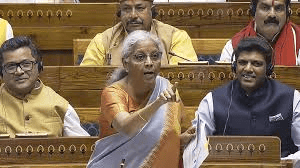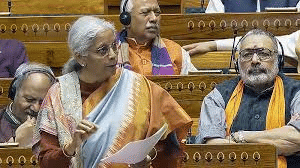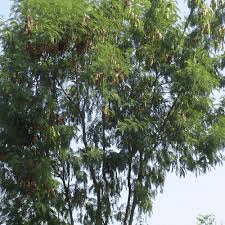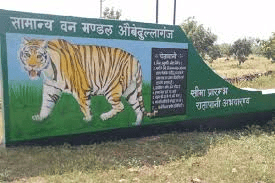UPSC Daily Current Affairs: 4th December 2024 | Current Affairs & Hindu Analysis: Daily, Weekly & Monthly PDF Download
GS2/Governance
Bank Bill passes LS, allows one account, 4 nominees
Source: Hindustan Times
Why in News?
On December 3, 2024, the Lok Sabha approved the Banking Laws (Amendment) Bill, 2024, marking the first legislative achievement of the Winter Session following a week-long stalemate.
Key Features of the Banking Laws (Amendment) Bill, 2024:
- Nomination Provisions: The Bill permits bank account holders to designate up to four nominees for their accounts, allowing for either simultaneous or successive nominations. However, locker holders can only select successive nominations.
- Redefinition of “Substantial Interest”: The definition threshold for “substantial interest” in directorships will rise from ₹5 lakh to ₹2 crore, reflecting contemporary economic realities.
- Tenure of Directors: The tenure for directors (excluding chairpersons and whole-time directors) in cooperative banks will be extended from eight to ten years, in line with the provisions of the Constitution (Ninety-Seventh Amendment) Act, 2011.
- Common Directorships: The Bill allows directors of Central Cooperative Banks to hold positions on the boards of State Cooperative Banks under specified conditions.
- Auditor Remuneration: It provides banks with increased flexibility in setting remuneration for statutory auditors, which was previously regulated by the Reserve Bank of India (RBI) and the central government.
- Reporting Dates: The deadlines for regulatory compliance reporting will change from the second and fourth Fridays of the month to the 15th and the last day of each month, streamlining oversight processes.
Reasons for the Amendment:
- Enhancing Governance: The amendments aim to boost governance standards within banks, providing stronger protections for depositors and investors while improving the quality of audits in public sector banks.
- Customer Convenience: By permitting multiple nominations, the Bill seeks to ease inheritance processes related to bank deposits and minimize the occurrence of unclaimed deposits following the death of an account holder.
- Alignment with Constitutional Provisions: Extending director tenures in cooperative banks aligns banking regulations with the constitutional amendments that govern cooperative societies.
Significant Impact of the Amendment:
- Improved Customer Experience: Allowing multiple nominations enhances customer convenience and facilitates smoother transitions in account management after an account holder's death.
- Strengthened Governance Framework: By redefining substantial interest and extending director tenures, the Bill aims to create a more robust governance framework within cooperative banks, likely leading to improved decision-making and accountability.
- Regulatory Compliance Efficiency: The adjustment in reporting dates is expected to enhance compliance efficiency, enabling banks to better align their reporting with regulatory standards.
Criticism Faced by the Banking Laws (Amendment) Bill, 2024:
- Concerns Over Financial Practices: Opposition leaders have raised alarms about rising imports from China amid strained relations and criticized broader financial practices such as demonetization and electoral bonds.
- Banking Fees and Cybersecurity Risks: Critics have pointed out issues regarding fees for basic banking services like ATM withdrawals and SMS alerts, particularly highlighting the vulnerabilities faced by senior citizens in relation to cyber fraud.
- Economic Context: Some opposition members have criticized the timing of the Bill amid economic challenges, such as inflation surpassing growth rates, which could lead to stagflation. They expressed doubts about whether these amendments would effectively tackle underlying economic problems.
Way Forward:
- Addressing Broader Economic Concerns: The government needs to focus on macroeconomic reforms to manage inflation and promote sustainable growth. The Banking Laws Amendment should be accompanied by policies that address the root causes of economic challenges, ensuring stability in the banking sector.
- Strengthening Cybersecurity and Customer Protection: Banks should enhance security protocols, especially for senior citizens, to protect against increasing cyber fraud.
Mains Question for Practice:
Q: The Banking Laws (Amendment) Bill, 2024, introduced several changes aimed at strengthening governance within the banking sector and enhancing customer convenience. Critically analyze the key features of the Bill, its reasons for introduction, and its potential impact on the banking sector. (250 words) 15M
GS1/Geography
VIZHINJAM SEA PORT
Source:The Hindu
Why in news?
In a significant development for maritime infrastructure in Kerala, the government is set to issue the provisional completion certificate for the Vizhinjam international seaport, which will commence informal commercial operations. This marks a milestone in the port's development, which had already started limited-scale operations as a trial run on July 12, during which 70 cargo ships have successfully docked. With nearly 90% of the necessary infrastructure completed, the remaining work is expected to be finalized in the coming months without delaying full-scale commercial activities.
The Vizhinjam International Seaport is a major infrastructure initiative located in Vizhinjam, Thiruvananthapuram, Kerala.
- Location: Positioned approximately 16 kilometers south of Thiruvananthapuram, Kerala.
- Significance: It is recognized as India’s first deep-water container transshipment port.
- Key Features:
- Strategic Location: The port is located just 10 nautical miles from a crucial international shipping lane that connects Europe, the Persian Gulf, Southeast Asia, and the Far East.
- Natural Depth: With a natural depth of 24 meters, the port minimizes the need for extensive dredging, making it more environmentally friendly and cost-effective.
- Capacity: Designed to accommodate ultra-large container ships capable of carrying over 24,000 TEUs (Twenty-foot Equivalent Units), enhancing its operational capabilities.
- Infrastructure: The port features two breakwaters, a harbor basin, and multiple berths, including facilities for cruise ships.
- Economic Impact: The port is projected to manage 50% of India's container transshipment needs, which are currently serviced by ports in Dubai, Colombo, and Singapore.
- Development and Management:
- Developer: The project is a collaborative effort between the Government of Kerala and Adani Vizhinjam Port Private Limited (AVPL).
- Model: The port is developed under a landlord model, incorporating a Public-Private Partnership (PPP) framework based on the Design, Build, Finance, Operate, and Transfer (DBFOT) approach.
GS3/Economy
Windfall Gains Tax on Oil Production, Diesel-Petrol Export Removed
Source: Indian Express

Why in News?
With global oil prices stabilizing and the domestic fuel supply improving, the government has decided to remove the windfall gains tax, ensuring more predictable taxation for the oil sector.
What is Windfall Tax?
- A windfall tax is a levy imposed on companies that experience unexpected profits due to external factors such as market shifts or crises.
- In India, this tax was introduced on July 1, 2022, targeting domestic crude oil production and the export of diesel, petrol, and aviation turbine fuel (ATF).
- The primary goal of the tax was to capture windfall profits and ensure a stable domestic fuel supply amidst rising global prices, particularly following Russia's invasion of Ukraine.
- It was implemented as a Special Additional Excise Duty (SAED) on crude oil and as an Additional Excise Duty (AED) or Road and Infrastructure Cess (RIC) on fuel exports.
- Initially, the tax rates included Rs 23,250 per tonne on crude oil, Rs 13 per litre on diesel exports, and Rs 6 per litre on petrol and ATF exports, with regular reviews based on global oil price fluctuations.
Impact of Removing Windfall Tax
- Stable Tax Environment: The removal boosts predictability, encouraging long-term investments in oil production.
- Revenue Decline: The tax was generating decreasing revenue, which fell from Rs 25,000 crore in FY 2022-23 to Rs 6,000 crore in FY 2024-25.
- Oil Companies’ Profitability: Producers like ONGC and Reliance Industries will see increased profits as they no longer have to pay the levy.
- Encourages Domestic Production: The removal promotes higher domestic oil production and exploration activities.
- Policy Confidence: This signals India's confidence in stable global oil prices and future supply reliability.
GS2/Governance
Banking Laws Amendment Bill
Source:The Hindu
Why in News?
The Lok Sabha passed the Banking Laws (Amendment) Bill, 2024, marking the first legislative achievement of the Winter Session after a week-long deadlock. The Bill, introduced by Finance Minister Nirmala Sitharaman, was passed via a voice vote.
Introduction:
The Banking Laws (Amendment) Bill, 2024, was introduced in the Lok Sabha in August 2024 to amend various banking-related laws aimed at streamlining operations and modernizing regulations. The Bill modifies the following Acts:
- Reserve Bank of India (RBI) Act, 1934
- Banking Regulation Act, 1949
- State Bank of India Act, 1955
- Banking Companies (Acquisition and Transfer of Undertakings) Acts, 1970 and 1980
Key Amendments & Provisions of Banking Laws (Amendment) Bill, 2024:
- Redefinition of "Fortnight" for Cash Reserves:
- Current Definition: A fortnight is defined as Saturday to the second following Friday (14 days).
- New Definition: A fortnight will now be defined from the 1st to the 15th of each month, or from the 16th to the last day of the month.
- Impact: This redefinition influences how both scheduled and non-scheduled banks maintain their cash reserves with the RBI.
- Tenure of Directors in Co-operative Banks:
- Existing Rule: Directors (excluding the chairman or whole-time directors) are limited to 8 consecutive years in office.
- New Rule: This limit is extended to 10 consecutive years for directors in co-operative banks.
- Exemption for Common Directors in Co-operative Banks:
- Current Rule: A director cannot serve on the board of more than one bank, with exceptions for RBI-appointed directors.
- New Provision: Allows directors of central co-operative banks to also serve on the board of a state co-operative bank where they are a member.
- Increase in Threshold for Substantial Interest in Companies:
- Existing Threshold: Substantial interest is defined as holding shares worth more than ₹5 lakh or 10% of the company’s paid-up capital, whichever is lower.
- New Threshold: This threshold is raised to ₹2 crore, with the government having the authority to modify this amount through notifications.
- Nomination Rules for Deposits and Lockers:
- Current Provision: A single or joint deposit holder can appoint only one nominee.
- New Provision: Up to four nominees can now be appointed for deposits. Nominees may be named simultaneously or successively, with shares divided proportionally in simultaneous nominations.
- For Lockers and Articles in Custody: Successive nominations can be made, with priority determined by the order of nomination.
- Settlement of Unclaimed Amounts:
- Unclaimed dividends are transferred to the Investor Education and Protection Fund (IEPF) after seven years.
- The scope is expanded to include:
- Shares with unclaimed dividends for seven consecutive years.
- Unpaid interest or redemption amounts for bonds for seven years.
- Claimants can retrieve shares or funds transferred to the IEPF.
- Auditor Remuneration:
- The RBI, in consultation with the central government, will determine auditors' remuneration.
- This amendment empowers banks to independently decide the remuneration for their auditors.
Key Takeaways:
- The Bill introduces significant changes to enhance banking governance, improve operational efficiency, and safeguard customer interests.
- Key changes include:
- Simplifying regulatory frameworks for cash reserves and director tenures.
- Providing flexibility in nominations and addressing unclaimed funds.
- Empowering banks to set auditor fees independently.
- Strengthening the cooperative banking system through updated rules for directors and substantial interest thresholds.
GS1/Art & Culture
NANDALAL BOSE
Source:Indian Express

Why in news?
3rd December marked the birth anniversary of Nandalal Bose, a key figure in modern Indian art and a significant contributor to the neo-Bengal school.
- Nandalal Bose was born on December 3, 1882, in Munger, Bihar, and is celebrated as one of the foremost figures in modern Indian art.
- He was a student of Abanindranath Tagore and became famous for his unique "Indian style" of painting.
- In 1922, he took on the role of principal at Kala Bhavan in Santiniketan, where he influenced many artists.
- Bose drew inspiration from a variety of art forms, including:
- Japanese Nihonga traditions
- Mughal and Rajasthani miniatures
- Palm-leaf manuscripts
- Murals from the Ajanta Caves
- Some of his notable works are:
- "Yama and Savitri" (1913)
- "Kirat-Arjuna"
- During British colonial rule, when India's artistic heritage was in decline, Nandalal Bose was instrumental in revitalizing the country's cultural identity through his art and educational initiatives.
- Nandalal Bose passed away in 1966 in Santiniketan, West Bengal.
- He was awarded several honors, including the Padma Vibhushan.
- The National Gallery of Modern Art holds over 6,800 of his artworks.
- The Archaeological Survey of India recognizes Nandalal Bose's works as "art treasures" under the Antiquities and Art Treasures Act of 1972.
GS3/Environment
Air Quality Dashboard by the International Centre for Integrated Mountain Development
Source:DTE

Why in News?
Recently, the International Centre for Integrated Mountain Development (ICIMOD) has unveiled an Air Quality Dashboard, a public platform offering real-time and forecasted data on air pollution.
Overview of the Air Quality Dashboard
- The dashboard merges ground sensor data with satellite imagery, providing a detailed perspective on air pollution at local, sub-regional, and regional levels.
- Among its features is a dynamic timelapse powered by the Weather Research and Forecasting model with Chemistry (WRF-Chem).
- This model demonstrates the concerning spread of PM2.5 plumes in various regions, highlighting hotspots such as Lahore, New Delhi, and Kolkata.
- The WRF-Chem model allows users to investigate how weather patterns influence sources of air pollution, offering valuable insights into pollution outbreaks and trends.
- It incorporates emissions data from both local and regional sources, providing a clearer understanding of pollution dynamics across borders.
- Users can also access two-day forecasts, enabling communities, policymakers, and researchers to prepare for air quality conditions.
About the International Centre for Integrated Mountain Development
- The ICIMOD is an intergovernmental knowledge and learning center aimed at serving the people of the Hindu Kush Himalaya (HKH) region.
- It was formally established and inaugurated on December 5, 1983.
Member Countries
- Afghanistan, Bangladesh, Bhutan, China, India, Myanmar, Nepal, and Pakistan are the member countries of ICIMOD.
Functions of ICIMOD
- ICIMOD generates and shares information and knowledge to develop innovative solutions for significant mountain issues.
- The organization serves as a bridge between scientific research and policy-making, as well as practical implementation on the ground.
- It provides a regional platform for experts, planners, policymakers, and practitioners to exchange ideas and perspectives aimed at achieving sustainable mountain development.
Headquarters
- The headquarters of ICIMOD is located in Kathmandu, Nepal.
GS3/Science and Technology
Subabul Tree
Source:Hindustan Times

Why in News?
Researchers have discovered that the seedpods of the traditional medicinal plant Subabul may help manage insulin resistance associated with type II diabetes. They have developed a marker-assisted fraction and identified four active compounds from these seedpods.
About Subabul Tree:
- Subabul is a fast-growing leguminous tree typically found in tropical and subtropical climates.
- The tree originates from Mexico and is characterized as a small, perennial, woody plant with a highly branched structure and a short, clear trunk.
- It was introduced in various regions primarily as a cover crop for plantations, as well as for fodder and fuel purposes.
- Commonly found in states like Andhra Pradesh, Kerala, Maharashtra, Odisha, and Tamil Nadu.
- Both the leaves and immature seeds can be consumed in soups or salads, whether raw or cooked, making them a rich source of protein and fiber.
- This traditional usage highlights its importance in the diets of various ethnic communities for both human and animal consumption.
- The tree is also valued for its wood, which is used to produce quality charcoal, small furniture, and paper pulp.
What is diabetes?
- Diabetes is a chronic condition that arises when the pancreas fails to produce sufficient insulin or when the body cannot effectively utilize the insulin that is produced.
- Insulin is a crucial hormone that plays a key role in regulating blood glucose levels.
Type 2 Diabetes:
- In type 2 diabetes, the body does not use insulin efficiently, resulting in the inability to maintain normal blood sugar levels.
- This condition often develops gradually over many years and is typically diagnosed in adults, although it is increasingly being identified in children, teenagers, and young adults.
GS3/Science and Technology
Marburg Virus outbreak in Rwanda
Source: The Hindu

Why in news?
An outbreak of Marburg Virus Disease (MVD), also referred to as the "Bleeding Eyes" disease, has resulted in numerous cases and fatalities in Rwanda.
Here are the key points regarding the Marburg Virus outbreak:
- Overview of Marburg Virus Disease (MVD)
- MVD is categorized as a hemorrhagic fever.
- It belongs to the filovirus family, which also includes the Ebola virus.
- The virus was first identified during outbreaks in 1967 in Frankfurt, Germany.
- The case fatality rate of MVD varies significantly, ranging from 24% to 88%, depending on the virus strain and treatment options available.
- Transmission Methods
- Animal to Human Transmission: The virus primarily spreads from Rousettus bats, particularly the Egyptian fruit bats, which are often found in caves or mines.
- Human to Human Transmission: MVD can be transmitted through direct contact with blood and bodily fluids such as saliva, vomit, feces, semen, and breast milk. Additionally, it can spread indirectly via contaminated surfaces or clothing.
- Symptoms and Treatment
- Initial symptoms include fever, headache, muscle aches, chills, nausea, vomiting, and severe diarrhea.
- As the disease progresses, it can lead to bleeding from various body parts, with death typically occurring 8-9 days after the onset of symptoms due to blood loss and organ failure.
- Currently, there is no approved vaccine or antiviral treatment for MVD. Supportive care is crucial and includes hydration, management of symptoms, and blood transfusions. Experimental vaccines are under investigation.
- Global Concern of MVD
- The high fatality rate (24%-88%) makes MVD one of the most lethal diseases.
- While outbreaks are primarily ongoing in Africa, recent cases have also been reported in Tanzania.
- MVD poses a significant public health threat due to the potential for human-to-human transmission and rapid spread.
- The economic impact of outbreaks can be substantial, as they disrupt local economies, healthcare systems, and global trade, leading to travel restrictions and quarantine measures.
GS3/Environment
ICJ begins hearing on landmark climate change case
Source:Indian Express

Why in news?
The recent annual climate talks held in Baku, Azerbaijan, concluded with a sense of disappointment for many developing nations. Developed countries agreed to mobilize only $300 billion annually for climate finance, which is significantly lower than the $1.3 trillion that developing nations claim is necessary based on assessed needs. This situation underscores the persistent failure of developed nations to fulfill their climate finance commitments and responsibilities regarding emission reductions.
- In reaction to these developments, developing countries, particularly small island states, have decided to elevate the matter to the International Court of Justice (ICJ). On December 2, the ICJ commenced hearings on a case that seeks an advisory opinion concerning the obligations of nations under international law related to climate change and the potential legal implications of failing to meet these obligations.
Background – the case
- The ICJ is the main judicial body of the United Nations (UN), established in June 1945 by the UN Charter and began functioning in April 1946.
- The Court is located at the Peace Palace in The Hague, Netherlands, being the only one of the six main UN organs not situated in New York City.
- English and French are the official languages of the ICJ.
- The ICJ's role involves settling legal disputes submitted by states in accordance with international law and providing advisory opinions on legal questions referred by authorized UN organs and specialized agencies.
- The ICJ is composed of 15 judges, elected for nine-year terms by the UN General Assembly and Security Council, which vote separately but simultaneously.
- The president and vice-president of the ICJ are elected for three-year terms through a secret ballot, and judges are eligible for re-election.
Members and Jurisdiction
- All UN member states are automatically parties to the ICJ statute; however, this does not grant the ICJ automatic jurisdiction over disputes involving them.
- The ICJ can exercise jurisdiction only if both parties consent to it.
- The ICJ's judgments are final and binding on the parties involved, with no option for appeal, though they can be subject to interpretation or revision upon the discovery of new facts.
UNGA Resolution Initiated by Vanuatu
- The current case arises from a UN General Assembly (UNGA) resolution passed in March 2023, spearheaded by Vanuatu, a small Pacific Island nation severely impacted by rising sea levels.
- Vanuatu initially proposed seeking an ICJ advisory opinion on climate obligations in September 2021.
- The resolution gained considerable international support, co-sponsored by 132 countries.
- Notably, India did not join the majority of countries that supported the draft resolution.
Key Questions Raised in the Resolution
- The resolution poses two significant questions: What are the obligations of countries under international law to safeguard the climate system? What are the legal consequences for countries that fail to meet these obligations and cause harm to the climate system?
Purpose of ICJ Advisory Opinion
- The UNGA resolution requests the ICJ to clarify the climate obligations of countries in light of international laws and evaluate the legal ramifications for non-compliance.
Relevant International Legal Instruments dealing with the issue
While the 1994 UN Framework Convention on Climate Change (UNFCCC) and the 2015 Paris Agreement are central to climate law, the resolution also references other legal frameworks such as:
- UN Convention on the Law of the Seas
- Convention on Biological Diversity
- Convention to Combat Desertification
- Universal Declaration on Human Rights
- International Covenant on Civil and Political Rights
- UN Charter
India’s Role in the Hearings
- India is scheduled to present its submission on December 5.
- India has expressed concerns regarding whether initiating a judicial process is the most effective way to achieve shared climate goals, suggesting that diplomatic efforts may be more beneficial.
- India has indicated that a top-down approach is unnecessary in discussions surrounding climate change.
Nature and Potential Impact of the ICJ Advisory Opinion
- The ongoing hearings aim to yield an advisory opinion based on the UNGA resolution.
- Although the opinion will not be legally binding, it could significantly shape global climate governance by widening the legal framework for climate obligations and emphasizing consequences for non-compliance.
Historical Context of Climate Obligations
- According to the UNFCCC, approximately 40 developed nations are identified as primarily responsible for historical emissions.
- These nations have often evaded their responsibilities, shifting some burdens onto developing countries.
Expanding the Basis of Climate Obligations
- An ICJ ruling might indicate that the climate obligations of developed nations extend beyond the UNFCCC and Paris Agreement to additional international legal frameworks.
- This could lead to new arguments in climate negotiations and strengthen claims by small island states for compensation related to climate-induced damages.
Potential Precedent for Climate Litigation
- An advisory opinion from the ICJ could empower numerous climate lawsuits worldwide. As of 2023, over 2,600 climate-related cases have been filed globally, with several landmark rulings already made.
- For example, the European Court of Human Rights ruled that Switzerland’s failure to meet emission targets violated the human rights of its citizens.
- In April 2023, India’s Supreme Court expanded fundamental rights to include protections against adverse climate impacts.
GS3/Science and Technology
ecDNA Challenges Law of Genetics
Source:The Hindu

Why in News?
A recent study published in the journal 'Nature' has revealed that extrachromosomal DNA (ecDNA) is present in nearly 50% of cancer types, significantly influencing tumor evolution and genetic diversity.
What is ecDNA?
- Extrachromosomal DNA (ecDNA) refers to small, circular DNA that exists within the nucleus of cells, distinct from standard chromosomes.
- It forms when segments of DNA detach from chromosomes, often as a consequence of cellular damage or errors during cell division.
- EcDNA has the capacity to carry additional copies of oncogenes, which are genes that encourage cancer proliferation.
- Initially dismissed as insignificant, emerging research indicates that ecDNA plays a critical role in the development of cancer.
How ecDNA Contributes to Cancer and Drug Resistance
- Helps Tumors Grow: EcDNA contains extra copies of oncogenes that enable cancer cells to proliferate more rapidly and become more aggressive.
- The surplus oncogenes complicate treatment with conventional medications, as they lead to the production of more harmful proteins.
- Faster Tumor Evolution: EcDNA facilitates swift evolutionary changes in cancer cells, increasing their resistance to therapies such as chemotherapy and allowing tumor growth despite drug interventions.
How ecDNA Challenges Genetics Laws?
- Mendel’s Law: This law posits that genes located on different chromosomes are inherited independently, meaning they are randomly passed to the next generation.
- EcDNA contradicts this principle by clustering genes together and transmitting them as a unit during cell division.
- This mechanism enables cancer cells to more readily acquire advantageous genes, thereby aiding tumor survival.
- Unlike standard chromosomes, which segregate randomly during cell division, ecDNA is transmitted together, enhancing the likelihood that cancer cells inherit favorable genetic combinations that promote growth and drug resistance.
GS3/Environment
RATAPANI TIGER RESERVE
Source:Indian Express

Why in news?
The Ratapani Wildlife Sanctuary in Madhya Pradesh has been designated as a tiger reserve following the in-principle approval from the Ministry of Environment, Forest, and Climate Change, facilitated by the National Tiger Conservation Authority. This decision coincides with Madhav National Park in Madhya Pradesh also receiving approval for tiger reserve status. Ratapani now stands as the 57th tiger reserve in India, marking an important advancement in efforts to conserve tiger populations.
- The official notification outlines the core and buffer zones, making Ratapani the eighth tiger reserve within Madhya Pradesh.
- The core area covers an expanse of 763.8 square kilometers, while the buffer area is 507.6 square kilometers, bringing the total area of the Ratapani Tiger Reserve to 1,271.4 square kilometers.
- This notification has been issued under Section 38V of the Wildlife (Protection) Act of 1972, recognizing the core area as an essential habitat for tigers.
Geographical Significance
- Situated within the Vindhya hills, the sanctuary also houses a UNESCO World Heritage Site, the Bhimbetka Rock Shelters, along with numerous historical and religious sites.
Biodiversity
- Ratapani Tiger Reserve is known for its rich biodiversity, featuring various types of flora such as teak and bamboo forests, along with a wide array of wildlife species.
|
38 videos|5293 docs|1118 tests
|
















